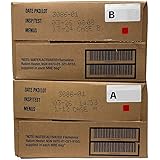Hey there! So, I wanted to share a few valuable insights on something that can really catch us off guard—gas shortages during emergencies. I’ve learned a thing or two about how to prepare, and I’m here to pass on that knowledge. Gas shortages can happen for several reasons, and trust me, being ready makes a world of difference. Let’s dive into the areas you should be focusing on!
Understanding the Causes of Gas Shortages
The Role of Natural Disasters
Natural disasters, like hurricanes, floods, or wildfires, can greatly disrupt fuel supplies. When major storms hit, they can take out refineries and pipelines, leaving many without the gas they need. From personal experience, when Hurricane Harvey hit Texas, I saw firsthand how quickly gas stations ran dry.
It’s not just about being prepared for the storm; it’s about anticipating the aftermath. Stocking up on gas before a predicted disaster can save you a lot of stress later on. The key takeaway here? Always keep an eye on the weather, especially during hurricane season.
Another tip is to stay updated on your local situation. News reports often cover supply issues during major weather events, which can help you plan ahead.
The Impact of Economic Factors
Economic factors, including oil prices and geopolitical tensions, can create significant gas shortages. I remember during a major political upheaval in the Middle East, gas prices spiked overnight, and people were panic-buying at the pumps. Prices affect supply chains, and when they’re high, it’s harder to find gas.
This is where a bit of foresight comes in handy. Being aware of global news can help you predict when to stock up. I’ve started tracking trends and noting down when prices rise, so I can prepare in advance.
Plus, getting to know your local fuel supply and distribution can help. Some areas are more vulnerable to shortages, while others might hold steady regardless of the external situation.
Understanding Demand Fluctuations
Speaking of demand, during holiday seasons or major events, gas consumption tends to spike. I’ve been in situations where, right before a big holiday weekend, the local gas station had lines wrapped around the block!
== > What if ... Get a FREE Subscription to PREPARE
This is a perfect example of how planning can be your best friend. I now make sure to fill up before major holidays, so I don’t get stuck in endless lines. It’s a simple hack that saves time and stress.
Also, consider that some regions have higher demands than others. Being aware of when and where those spikes in demand occur can help you navigate your own fuel needs effectively.
Creating an Emergency Fuel Plan
Assessing Your Fuel Needs
The first thing I do is assess how much fuel I might need during a potential shortage. Think about your daily routine—how far do you drive each week? For me, it’s about 30 minutes commute, plus errands, so I keep that in mind.
Next, I plan for potential emergencies. It’s wise to calculate how long you could make it through if you had to stay local. I like to have at least a half-tank of gas as a baseline for emergencies.
Being realistic about your needs versus what you have is crucial. For example, if your car has a low fuel efficiency, you might want to stock up a bit more and find alternatives for the time being.
Storing Fuel Safely
Now, let’s talk about how to store fuel safely. If you decide to buy extra, make sure you’re using the right containers—special fuel cans that are explosion-proof are a must!
When I first started storing gas, I learned the hard way that it needs to be in a well-ventilated area, away from direct sunlight. You don’t want to inadvertently create a fire hazard.
It’s also a good idea to keep track of expiration dates. Gas can degrade over time, so I’ve made it a habit to rotate my stock so that I always have the freshest fuel available when I need it.
Creating an Action Plan
Having a fuel action plan in place means knowing what you’ll do if a shortage actually happens. For me, that includes knowing which gas stations usually have fuel available, and what alternate routes I can take if needed.
Map out your plan before you need it. Identify key points of interest – grocery stores, hospitals, and fuel stations. It’s a bit of extra homework, but it makes me feel way more at ease in case something goes south.
Keep your plan handy, and don’t be afraid to adapt it. As conditions change, staying flexible will help you feel more prepared.
Monitoring the Situation Regularly
Staying Informed
For me, keeping tabs on fuel prices and availability is a daily task. I’ve found that local news websites and apps do wonders for keeping me in the know. Plus, social media can sometimes provide real-time updates about what’s happening in nearby gas stations.
Joining community forums can also be a great way to exchange info. I’ve made a few friends who share fuel updates, which adds a layer of community support during emergencies.
Get Preparedness and Self-Reliance Tips. Subscribe Now!
Every little bit of information helps in making decisions, and the earlier you know about a shortage, the better prepared you’ll be. I set alerts on my phone for local updates, and they’ve paid off more than once!
Using Fuel Efficiently
Monitoring your driving habits is also crucial. I like to use apps that monitor gas usage, and I consciously plan my errands to minimize trips. For example, I try to group errands together instead of running out multiple times a week.
Also, consider carpooling if that’s an option. I’ve found it not only helps save fuel, but it’s also a great way to spend time with friends! Every little bit helps when gas is in short supply.
Being smart about fuel cuts down on stress and saves you money, which encourages you to stay vigilant about your gas usage.
Preparing for Future Trends
Finally, I think about how fuel trends might evolve. There’s talk about electric vehicles and alternative fuels changing the landscape, and I try to keep an open mind. It’s better to adapt early than to be caught flat-footed.
Investing in more fuel-efficient options can also save you in the long run. I’m seriously considering hybrid options myself, as it’s not just about today but also about the future!
For now, though, I stay educated and ready. The better prepared I am for potential shortages, the more peace of mind I have for myself and my family.
Establishing a Fuel Supply Network
Building Relationships with Local Suppliers
One thing I’ve learned is having good relationships with local suppliers can make a difference. I’ve gotten to know a few local station owners, and they’ve given me heads-ups about shipments and availability.
It’s all about building trust. When you support local businesses, they’re more likely to help you out during tough times—but it’s gotta be mutual. I try to fill up at the same stations often, so they recognize me.
Having that personal connection can make you feel more secure in your fuel plans. Sometimes it’s just a matter of knowing the right people!
Sharing Resources with Neighbors
During times of need, sharing resources with neighbors can be a game changer. I once pooled together with a few neighbors to buy fuel in bulk, and it worked out great for everyone!
I also love organizing small neighborhood meetings that focus on emergency preparedness. It opens up the dialogue and allows everyone to exchange tips and strategies—it’s amazing what you can learn from one another.
Community is what helps us get through tough situations. Knowing that we’re all in this together makes a huge difference.
Creating a Local Emergency Group
Lastly, I recommend creating or joining a local emergency group. This network can keep everyone informed and provides additional resources during shortages.
From first-responder training to fuel sharing initiatives, having a network adds a layer of resilience to our community. We’ve set up a group chat where we can notify each other about local shortages and resources we’ve found.
Remember, the goal is to ensure that we’re all safe and prepared, no matter what comes our way.
FAQs
- What should I do before a gas shortage occurs?
Stock up on fuel and keep a half-tank at all times. Stay informed about weather patterns and news, and always plan errands to minimize trips.
- How can I safely store extra fuel?
Use proper fuel containers that are explosion-proof and keep them in a cool, dry area. Make sure to rotate your stock to prevent degradation.
- How do I monitor local fuel availability?
Use local news broadcasts, apps, and social media to receive updates about gas stations. Joining community forums for shared experiences can also be valuable.
- What if I run out of fuel during an emergency?
Have an action plan in place, including knowing your nearest stations and alternate routes. Community networks can be helpful too!
- How can community involvement help with fuel shortages?
Building relationships with local suppliers and participating in neighborhood resource-sharing efforts can significantly improve preparedness and support during shortages.






